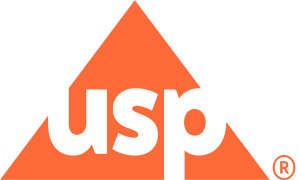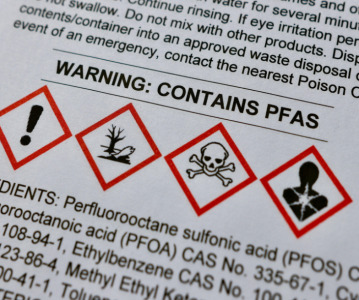On Track at CPHI NA 2024: Supply Chain Economy with US Pharmacopeia
.png)
On the 7–9 May 2024 in Philadelphia, CPHI NA will be presenting an unmissable agenda, filled with content across 4 main tracks. In the following interview the Supply Chain Economy Track sponsor, the US Pharmcopeia introduces the track, and what they're most looking forward to.
In the following interview with Matthew Christian, USP’s Director, Supply Chain Insights, USP Supply Chain Centre, Christian discusses supply chain resilience, and the importance of this to individual patients.
Could you please give an overview of the US Pharmacopeia and your key priorities as an organisation?
For over 200 years, USP has been working to ensure there is a strong, consistent supply of safe, quality medicines people can rely on. Through its standards, scientific expertise, and capability building solutions, USP is able to tap a global network of regulators, industry leaders, and manufacturers to gather insights and focus on quality that enables a more resilient medicine supply chain.
The global medicine supply chain is a complex marketplace of manufacturers, suppliers, and distributors from many countries, which makes it susceptible to disruptions that can impact getting critical medicines into the hands of those who need them.
A key priority for USP has been supporting and ensuring a resilient supply chain, which requires a multi-pronged approach, including:
• Predicting and preventing drug shortages
• Utilising standards to foster quality
• Optimising manufacturing capacity
• Strengthening regulatory frameworks
USP is sponsoring the Supply Chain Economy Track at CPHI NA, why is this track so important, and what is USP hoping to bring to Philadelphia with this track?
The Supply Chain Economy Track is important because it will address challenges in the pharmaceutical supply chain. Starting with "The Supply Chain is Broken. What will it take to fix it?", the session emphasises patient advocacy and partnerships to ensure access to essential medicines. Subsequent discussions focus on leveraging data analytics for efficiency, navigating drug pricing dynamics, and evaluating reshoring prospects. These insights are essential for fortifying the supply chain and ensuring equitable access to medications.
Currently, no single government agency or industry entity has a comprehensive view of the medicine supply chain. What USP is hoping to bring to Philadelphia with this track is increased visibility and insights so that industry and governments can better identify potential vulnerabilities, understand the root causes of supply chain disruptions, and effectively deploy resources to improve the resiliency and reliability of the supply chain.
The North American market has been experiencing many shifts recently in how the pharmaceutical supply chain operates, such as ongoing drug shortages, decentralising manufacturing, emergence of new technologies and modalities, and measures put in place as part of the Inflation Reduction Act. How have you seen these factors impact patients in the USA?
Drug shortages continue to pose a significant threat to patients in the USA and public health. Moreover, shortages of critical medications, particularly those used in cancer treatment, amplify the challenges patients face and underscore the importance of addressing vulnerabilities in the pharmaceutical supply chain to safeguard patient well-being. These shortages may directly impact patients such as by treatment delays or the utilization of less effective treatments, which can sometimes lead to unfavourable outcomes. Certain risk categories, including geographic concentration, manufacturing complexity, low prices, and/or quality concerns, singularly or in combination, can increase a medication’s risk for shortage.
Have you encountered any challenges because of these factors? How do you propose companies will navigate them?
Yes. Most of these factors come with their challenges. For example, USP has been working towards increasing the resiliency of the pharmaceutical supply chain through enhancing its visibility and transparency. However, this is easier said than done, as the upstream drug supply chain data are complex, come from disparate sources scattered across multiple platforms, and may have limited quality. Bridging these data and information gaps is essential to bolstering the government and industry’s ability to implement targeted and effective interventions, thus efficiently improving the resilience of the pharmaceutical supply chain through enhanced data to inform decisions and early actions.
In addition, both governments and industry have been increasingly considering the adoption of advanced manufacturing technologies that can help with addressing rapid scale up for manufacturing capabilities, emerging threats, and the resilience of the pharmaceutical supply chain. Yet, increased adoption of advanced manufacturing technologies has encountered several challenges, with the three primary barriers revolving around uncertainty in return on investment, knowledge gaps regarding implementation, and regulatory uncertainty.
How can data and technology be used to ensure the supply chain is more stable and efficient?
You can’t fix something if you don’t know where it’s broken. That’s where data and technology come in – identifying factors that put the supply chain at risk, so stakeholders take steps to make it more resilient. For example, USP Medicine Supply Map uses over 40 datasets from reputable entities such as USP, FDA, Centres for Medicare & Medicaid Services, European Medicines Agency, World Health Organisation, and private sector sources to identify factors contributing to drug shortages. It analyses factors such as geographic concentration, manufacturing complexity, price, and quality to assess supply chain vulnerabilities for a given drug.
Importantly, insights gleaned from the use of USP quality standards in over 80% of FDA-registered finished dose and API manufacturing facilities inform the model, contributing to its accuracy and reliability. By harnessing data and technology in this manner, the Medicine Supply Map enhances supply chain stability and efficiency by providing invaluable insights for stakeholders to mitigate risks and optimise operations.
For additional information related to USP’s Medicine Supply Map, please visit usp.org
How has patient-centricity influenced how medicines are developed from early stages in research and development, to manufacturing, in recent years, and how will this help to increase patients’ access to medicine?
In recent years, patient-centricity has significantly shaped the development of medicines, spanning from early-stage research and development to manufacturing. This shift has been marked by organisations bolstering support for processes, products, and systems tailored with the patient in mind, coupled with swift responses to patient feedback. This evolving mindset aims to enhance medicine access for patients by fostering consistency and reliability in drug manufacturing.
Which other sessions in the Track are you most looking forward to and why?
I'm looking forward to the "Revolutionising Drug Manufacturing" track session. It promises to offer valuable insights into innovation and advancement in pharmaceutical manufacturing. From embracing risk-taking mindsets to exploring the impact of new technologies and AI challenges, each presentation and panel topic seems poised to provide actionable strategies for driving efficiency, quality, and innovation in drug manufacturing.
I'm particularly excited about learning how personalised medicine intersects with modern quality practices and discovering strategies for building cost-effective manufacturing frameworks. These discussions hold immense potential for shaping the future of pharmaceutical manufacturing, and I'm eager to engage with fellow attendees to exchange ideas and insights during the session. Furthermore, all the sessions provide important insights that we can use to further inform the development of solutions that meet the evolving needs of manufacturers.
For additional information related to USP’s supply chain resiliency initiatives, please visit usp.org
For more details about the Supply Chain Economy Track at CPHI NA, see here.

Related News
-
News Technology revolutionising drug substance development: CPHI North America Interview
From one of the content tracks at CPHI North America in Philadelphia, USA, in May, a lightning round talk was presented on 'Combining Biology and Chemistry for Smart Manufacturing', from Masha Kononov, Ingenza. In the following interview K... -
News How are new PFAS regulations impacting excipient manufacture? – CPHI North America Interview
In another interview from CPHI North America in Philadelphia in May, Peter Schmitt from Montesino Associates talks about his presentation on 'Navigating the Waters of Change: The Impact of New PFAS Regulations on the Manufacture of Excipients ... -
News Providing solutions for special populations – CPHI North America Interview
In Philadelphia in May on site at CPHI North America we were able to meet with some of our speakers regarding their presentations. In the following interview Srinivasan Shanmugam, Executive Director, Pharmaceutical Sciences, Business Sup... -
News How tech transfer and process optimisation can help patients – CPHI North America Interview
Following a successful few days in Philadelphia for CPHI North America, I was able to discuss some of the sessions with our expert speakers, gaining a little more insight into the key topics from the event. -
News Angels for Change: Guardians of the pharmaceutical supply chain
Angels for Change is an organisation that aims to build up resilience in the supply chain, by linking real life cases of patients that have been affected by drug shortages, and working to rectify and prevent them. -
News CPHI North America 2024 – From the Floor
Welcome to Philly! CPHI North America once again graces the Philadelphia Convention Center, 7–9 May 2024. -
News Women in Pharma: Diversi‘tea’ at CPHI North America
CPHI North America will unite the pharmaceutical supply chain in Philadelphia from May 7–9, 2024 for 3 days of innovation and connections. As part of the content Agenda, our Diversity Track will bring the industry together to discuss the imperati... -
News On Track at CPHI NA 2024: Sustainable Futures with Thermo Fisher Scientific
On the 7-9 May 2024 in Philadelphia, CPHI NA will be presenting an unmissable agenda, filled with content across 4 main tracks. In the following interview the Sustainable Futures Track sponsor, Thermo Fisher Scientific gives an overview of what to expe...
Recently Visited
Position your company at the heart of the global Pharma industry with a CPHI Online membership
-
Your products and solutions visible to thousands of visitors within the largest Pharma marketplace
-
Generate high-quality, engaged leads for your business, all year round
-
Promote your business as the industry’s thought-leader by hosting your reports, brochures and videos within your profile
-
Your company’s profile boosted at all participating CPHI events
-
An easy-to-use platform with a detailed dashboard showing your leads and performance






.png)
